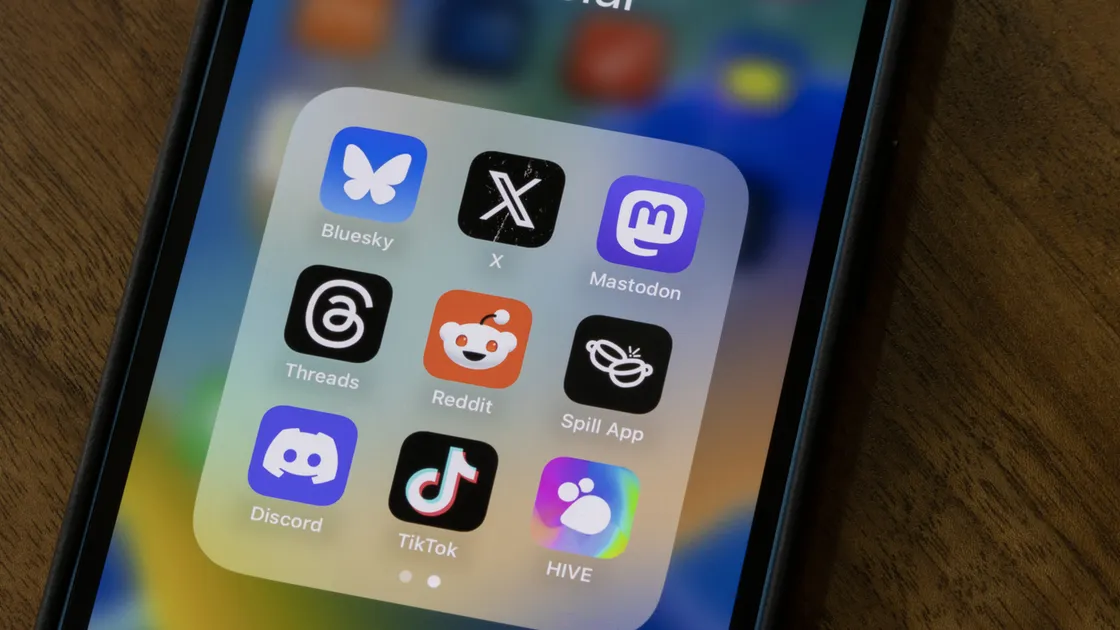What Are the Risks of Influencer Marketing? Key Considerations in the Japanese Market (With Case Studies)

- 0-1. Overview of Influencer Marketing
- 0-2. The Growth of Influencer Marketing in Japan
- 0-3. Risks of Influencer Marketing in Japan
- 0-4. Risk Factors of Influencer Marketing in the Japanese Market
- 0-5. 1. Compliance and Legal Regulations
- 0-6. 2. Cultural Value Misunderstanding
- 0-7. 3. Brand Image Mismatch
- 0-8. Case Studies of Japanese Companies’ SNS Backlash
- 0-9. Practical Measures to Avoid Risks in Influencer Marketing
- 0-10. 1. Clarifying Influencer Selection Criteria
- 0-11. 2. Clarifying Contract Details
- 0-12. 3. Analyzing Engagement Data
- 0-13. 4. Building Strong Relationships with Influencers
- 0-14. 5. Ensuring Transparent Communication
- 0-15. 6. Effectively Communicating Product Value to Influencers
- 0-16. 7. Leveraging Various Social Media Platforms
- 0-17. 8. Choosing Influencers Who Match the Product’s Target Audience
- 0-18. Conclusion
- 1. Partner with hotice: Your Trusted Influencer Matchmaker in Japan
In the rapidly digitizing world, influencer marketing has gained significant traction in Japan, particularly among younger audiences. Social media has become an essential platform for disseminating information, and brands are leveraging the influence of influencers to drive their marketing strategies. However, many companies have concerns such as “What if the influencer causes a controversy due to past statements?”, “Why don’t high follower counts translate into sales?”, and “How should we handle improper advertising methods?”. Without proper risk management, there is a risk that the brand image could be damaged. This article explains the risks associated with influencer marketing and provides strategies to avoid them, ensuring effective and safe implementation.
Overview of Influencer Marketing
In today’s digital age, influencer marketing has become one of the most effective methods for businesses to spread awareness about their products and services. As consumer buying behavior becomes increasingly diversified, recommendations from trusted sources have a significant influence. Especially with the growth of social media, individual influencers have gained substantial power in shaping marketing strategies.
The Growth of Influencer Marketing in Japan
Influencer marketing in Japan has been rapidly growing in recent years. The market size was 33.2 billion yen in 2020, 46.5 billion yen in 2021, and 61.5 billion yen in 2022, and it is expected to continue expanding. The number of social media users continues to rise, with platforms like Instagram and YouTube being widely used, especially among younger audiences. Many companies have started leveraging influencers to increase brand awareness and engage in promotional activities through these platforms. In fact, many businesses are already seeing positive results from using influencers for their SNS advertising campaigns. Additionally, influencer collaborations are gaining attention as a cost-effective way to manage advertising budgets and increase consumer engagement.
Given that each social media platform—Instagram, Twitter, YouTube—has its own characteristics and target demographics, it is essential for businesses to choose the right platform to suit their products and services.
Risks of Influencer Marketing in Japan
While influencer marketing is growing rapidly in Japan, there are several risks that businesses need to be aware of. Identifying these risks and implementing appropriate measures is key to achieving success in influencer marketing. Let’s look at the specific risks involved.
1. Inappropriate Statements by Influencers
In Japan, the statements or actions of influencers can have a significant impact on a company’s brand image. Japanese consumers place great value on “trust” in companies and celebrities, and inappropriate comments can quickly lead to a backlash. The speed at which statements spread on social media means that even a single problematic remark can lead to a scandal.
When partnering with influencers, it’s important for companies to carefully evaluate the influencer’s past behavior and values to ensure they align with the brand image. In Japan, the “speed of response” by the company is also highly valued, so if an issue arises and the company does not handle it appropriately, it may damage the company’s trustworthiness.
To mitigate this risk, businesses should choose influencers not only based on follower count and popularity but also based on their past behavior and ethical standards, ensuring that the influencer will be able to enhance the brand’s value in the long term.
2. Concerns About Stealth Marketing
When influencers promote a product or service, failing to clearly indicate that the content is sponsored can lead to accusations of “stealth marketing”. In Japan, guidelines regarding advertising disclosure are strictly enforced, and failure to comply with these guidelines can lead to legal consequences for both the company and the influencer.
Japanese consumers place a high value on “integrity” and “transparency,” so when posts are discovered to be hidden advertising, it can lead to significant backlash. A loss of trust for the influencer can severely diminish their influence, and the company may also face negative consequences.
To avoid this, companies must ensure that influencers clearly disclose when content is sponsored, and the company should establish clear guidelines in contracts to encourage transparency in communication.
3. Mismatch Between Target Audience and Followers
If the followers of an influencer do not align with the company’s target audience, the marketing efforts will not yield the desired results. In Japan, consumer behavior varies significantly by age and lifestyle, so ignoring the demographics of an influencer’s followers can greatly diminish the effectiveness of the campaign.
For example, if a company promoting products aimed at a younger audience selects an influencer whose followers are predominantly middle-aged or older, the promotion will likely have limited impact. This type of mismatch not only leads to wasted advertising spend but also negatively affects the overall ROI (return on investment) of the company’s marketing efforts.
To ensure effective promotion, businesses should not only consider the number of followers but also carefully analyze the followers’ age, gender, and interests to select influencers who have a high affinity with the target audience.
Risk Factors of Influencer Marketing in the Japanese Market
Influencer marketing has rapidly gained traction in Japan, particularly in the digital age. However, as companies increasingly rely on influencers for promotion, several risks can affect brand image and consumer trust. Identifying and addressing these risks is crucial for successful influencer marketing. Below, we explore key risk factors specific to the Japanese market and provide strategies for managing them effectively.
1. Compliance and Legal Regulations
In Japan, there are strict legal regulations concerning advertising and influencer marketing. Violating these regulations can lead to legal consequences for both companies and influencers. Notably, misleading expressions and exaggerated claims are prohibited under the Act Against Unjustifiable Premiums and Misleading Representations (景品表示法) and the Act on Specified Commercial Transactions (特定商取引法). The Consumer Affairs Agency is vigilant in monitoring these activities.
Stealth Marketing (stealth ads) is particularly problematic. If influencers fail to clearly disclose that their content is an advertisement, it can be seen as deceptive marketing, resulting in administrative sanctions or legal penalties. For example, failing to mark posts with “PR,” “advertisement,” or “sponsored” may lead to accusations of misleading consumers.
To mitigate this risk, businesses must provide clear guidelines to influencers, ensuring that all campaigns comply with the regulations. Additionally, having a pre-established protocol for handling potential issues promptly is essential for maintaining the company’s credibility. Practicing transparent marketing is not only about legal compliance but also about maintaining consumer trust and protecting the brand’s value.
2. Cultural Value Misunderstanding
Influencers who do not understand Japan’s unique cultural values and sensibilities may unintentionally cause backlash and damage a brand’s image. Japanese consumers place high importance on “etiquette,” “respect,” and “harmony,” and actions or statements that disregard these values can easily attract criticism.
For example, statements or actions that downplay Japan’s traditions or religious elements, inappropriate expressions, or overly provocative performances can lead to public backlash. There have been cases where foreign influencers who disregarded Japanese culture faced significant criticism.
Even domestic influencers can lose followers’ trust if they make insensitive comments about socially sensitive topics. Therefore, when selecting influencers for marketing campaigns in Japan, it is crucial to ensure they understand the cultural context and can communicate appropriately. International brands entering the Japanese market should especially focus on collaborating with influencers who can create content that respects local customs and social contexts, thereby building trust with consumers.
Moreover, businesses should share the brand’s values and cultural guidelines with influencers, ensuring that their messaging aligns with Japanese culture and manners.
3. Brand Image Mismatch
If an influencer’s image does not align with the brand’s direction, it can create a sense of discomfort among consumers and damage the brand’s credibility. In Japan, “brand consistency” and “appropriate context” are highly valued. A mismatch between the brand and the influencer can make the collaboration feel unnatural.
For example, if a luxury brand collaborates with an influencer who has a casual, down-to-earth image, the brand’s sophisticated image may be undermined, making it harder to appeal to the target audience. Conversely, a brand focused on accessibility may struggle if it partners with an influencer who has a more formal or elitist image, potentially alienating consumers.
Such mismatches arise because Japanese consumers prioritize “trustworthiness” and “storytelling” in brands. They expect brands and influencers to have a natural, authentic relationship. If an influencer who does not fit the brand’s identity promotes the product, consumers may question why the influencer is endorsing the brand, leading to a loss of trust.
To avoid this, businesses must carefully assess the influencer’s lifestyle, message, and past collaborations to ensure they accurately represent the brand’s image. Additionally, businesses should consider long-term partnerships where the influencer’s values align with the brand’s vision, fostering a more genuine and impactful relationship with consumers.
Case Studies of Japanese Companies’ SNS Backlash
As influencer marketing becomes more widespread, especially through SNS, certain marketing posts have led to significant backlash. Here are some real-life cases where Japanese companies faced criticism due to their influencer marketing campaigns:
DHC
DHC, a beauty product company, hired multiple influencers to promote the same product, leading to a backlash of “just another advertisement” and “are they really using it?” Japanese consumers place a high value on authenticity, and when a promotional message is too obvious, it can backfire. To avoid this, businesses should stagger posts and allow influencers to approach the product from different perspectives, ensuring that it feels more genuine.
Suntory
Suntory faced backlash when it posted a photo on a private account resembling an actress’s personal account to promote its “Horoyoi” drink. The post, which appeared to be natural but was later revealed to be part of a promotional campaign, sparked criticism for being deceptive. To prevent such situations, it’s essential for businesses to disclose when content is an advertisement and maintain transparency in their marketing.
Don Quijote
Don Quijote, a major discount store chain, faced criticism for using the hashtag “#みんなはドンキで何盗んだことある” (“What has everyone stolen from Don Quijote?”) in an Instagram post. The hashtag caused discomfort, and the company was accused of inappropriate marketing. This incident highlights the importance of being cautious with hashtags and expressions to avoid misleading or offending consumers.
Softbank
Softbank experienced backlash when it collaborated with a comedian for a promotional post featuring the character “Otosan Inu” (Father Dog). The comedian’s image did not align with the brand’s image, leading to negative reactions. Softbank had to remove the post and issue an apology. This incident underscores the importance of ensuring the influencer’s image matches the brand’s overall direction.
McDonald’s
McDonald’s 2023 ad campaign on X (formerly Twitter) featuring a family enjoying “ポテナゲ” (Potato Nuggets) generated 150 million views. While many positive comments praised the “happy family” theme, it also faced criticism from those who felt it imposed a traditional view of family and excluded non-traditional family structures. This case illustrates the need to be sensitive to diverse values and perspectives when crafting advertising campaigns.
Sanrio
Sanrio, known for Hello Kitty, faced confusion and dissatisfaction among fans when it removed about 400 videos from its official YouTube channel. The lack of explanation regarding the change led to public criticism. When such changes occur, it is crucial for companies to communicate transparently with their fans and consumers to maintain trust.
Practical Measures to Avoid Risks in Influencer Marketing
To avoid the risks associated with influencer marketing, taking proactive measures is essential. Here are practical strategies to prevent backlash and ensure effective execution of your campaigns.
1. Clarifying Influencer Selection Criteria
When selecting influencers, it’s crucial to choose individuals who align with your brand’s values and target audience. Setting clear selection criteria and evaluating factors such as follower demographics, past statements, and compatibility with the brand can significantly reduce risks. By having defined guidelines, influencers are more likely to align their activities with the brand’s image.
2. Clarifying Contract Details
In contracts with influencers, it’s important to clearly outline the campaign’s content, compensation, and messaging. Including clauses related to legal compliance and regulations in the agreement will help prevent future issues. Thoroughly review the terms in advance and ensure proper risk management.
3. Analyzing Engagement Data
To measure how effectively an influencer’s posts are reaching the target audience, it’s vital to analyze engagement data. Metrics like likes, comments, and shares will help evaluate the effectiveness of your marketing efforts. Using this data, you can adjust influencer selection and campaign strategies to improve performance in future campaigns.
4. Building Strong Relationships with Influencers
Building long-term relationships with influencers is crucial for the success of marketing efforts. After a campaign, maintaining ongoing cooperation requires actively expressing gratitude, providing feedback, and listening to the influencer’s opinions. Partnerships based on mutual trust foster more effective collaboration and positively impact future campaigns.
5. Ensuring Transparent Communication
Communication with influencers should always be open and transparent. Clearly communicate goals, expected outcomes, compensation, and terms to avoid misunderstandings or conflicts. Regularly sharing campaign progress and respecting the influencer’s opinions during the campaign ensures effective cooperation. Transparent communication is key to building trust and increasing satisfaction on both sides.
6. Effectively Communicating Product Value to Influencers
To ensure influencers can effectively promote products, they must have a thorough understanding of the product’s features and benefits. It is not just about conveying basic product information but helping influencers understand how the product can improve daily life or what value it offers. By understanding the product’s core appeal, influencers can emotionally recommend it in their own words, which resonates more with their followers.
7. Leveraging Various Social Media Platforms
Different social media platforms have unique characteristics and target demographics. To achieve optimal results, influencers should utilize multiple platforms. For example, Instagram is strong in visual content, while YouTube focuses on video content, so creating platform-specific content is necessary. Additionally, platforms like Twitter and TikTok require real-time engagement. By tailoring messages to suit each platform and audience, you can broaden your reach and strengthen brand recognition.
8. Choosing Influencers Who Match the Product’s Target Audience
To effectively promote a product or service, the influencer’s followers must align with the target audience. For example, if your product targets younger consumers, influencers popular on TikTok or YouTube are ideal. By choosing influencers who have influence over your target audience, you can significantly boost brand awareness and purchase intent.
Additionally, when influencers promote products in a way that reflects their own beliefs or style, they strengthen the trust between them and their followers, which increases the likelihood of driving sales.
Conclusion
To succeed in influencer marketing in Japan, it is essential to recognize the risks involved and take measures to address them. When selecting influencers, prioritize those who align with your target audience and brand values. Maintain transparency in communication, clarify contract terms, and avoid issues related to inappropriate statements or cultural misunderstandings. Additionally, use data analysis to measure campaign effectiveness and refine strategies for future initiatives.
By proactively addressing risks and implementing these strategies, you can leverage influencer marketing effectively, ensuring long-term success while maintaining your brand’s reputation and credibility.
Partner with hotice: Your Trusted Influencer Matchmaker in Japan
At hotice, we connect international brands with carefully selected Japanese influencers to deliver impactful and risk-free campaigns.
We offer:
・Expert influencer matching by industry and objective
・Multilingual communication support
・Campaign planning and performance tracking
・Full legal and cultural compliance
hotice supports foreign companies entering the Japanese market with PR, using celebrities and influencers.
We have previous experience in selecting appropriate creators and PR strategies, so please contact us if you have any questions.
.png)






